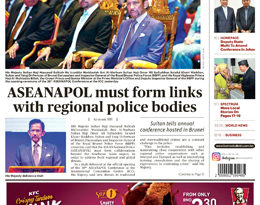ASEANEWS HEADLINE: SINGAPORE – Malaysia bars foreigners from Johor’s US$100b Forest City project that drew Chinese buyers

KUALA LUMPUR (REUTERS) – Malaysia will not allow foreigners to buy residential units built at the US$100 billion (S$136 billion) Forest City project in Johor, Prime Minister Mahathir Mohamad said on Monday (Aug 27).
The project has been wracked by uncertainty since Tun Dr Mahathir’s coalition scored a shock victory at a May general election, as developer Country Garden Holdings Co looks to revive faltering demand for its plans to build a city that would be home to 700,000 people.
“One thing is certain, that city that is going to be built cannot be sold to foreigners. We are not going to give visas for people to come and live here,” Dr Mahathir told reporters at a press conference.
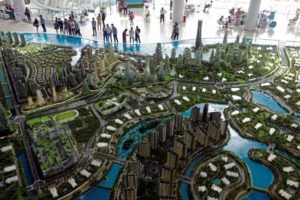
Prospective buyers looking at a model of the development at Country Gardens’ Forest City showroom in Johor Bahru, Malaysia, on Feb 21, 2017. PHOTO: REUTERS
“Our objection is because it was built for foreigners, not built for Malaysians. Most Malaysians are unable to buy those flats.”
Responding, Country Garden Pacificview, the joint-venture company developing Forest City, said that Dr Mahathir’s comments may have been taken out of context.
In a statement of clarification issued on Monday afternoon, the company said: “We are currently in touch with the Prime Minister’s Office for clarifications, as we believe Tun Mahathir’s comments may have been taken out of context in certain media reports.
“Today’s comments do not correspond with the content of the meeting between Tun Mahathir and founder and chairman of Country Garden Holdings, Yeung Kwok Keung.”

Mr Yeung had a 40-minute closed-door meeting with Dr Mahathir on Aug 16, before the Prime Minister’s visit to Beijing, the statement added.
“During the meeting, Tun Mahathir reiterated that he welcomes foreign investments which
could create employment opportunities, promote technology transfer and innovations that could benefit Malaysia’s economic growth and job creation,” the statement said.
It added that Forest City has complied with all laws and regulations with the necessary approvals to sell to foreign purchases.
“A foreign citizen or a foreign company may acquire land in Malaysia subject to the prior approval of the State Authority has been obtained. We do not issue any Permanent Residency (PR) to foreign buyers of Forest City,” the statement said.
The broadside against the plan by Country Garden was not the first by Dr Mahathir, but it could be his most damaging. Dr Mahathir suggested in a speech last December that he hoped Forest City would become an actual forest with baboons and monkeys as residents, according to local media reports.
Opposition to the project helped drive Dr Mahathir’s election campaign, during which he called it, and other Chinese-backed projects, evidence of his predecessor selling Malaysia to China. Malaysians living in Johor complained of large numbers of Chinese people snapping up properties in Forest City, besides concerns of environmental damage, a glut in the property market, and the impact of land reclamation on fisheries.
Country Garden has developed just a fraction of the planned reclamation of 20 sq km, where Chinese nationals accounted for about 70 per cent of apartment buyers last year.
A top official at the project told Reuters last week that in the weeks immediately after 93-year-old Mahathir came back into power, through a shock election victory in May, demand for the apartments had weakened, and that the uncertainty remained a concern.
His latest comments are likely to exacerbate those concerns.
Chinese buyers now make up about two-thirds of the owners of the Forest City apartments that have been sold so far, with 20 per cent from Malaysia and the rest from 22 other countries including Indonesia, Vietnam and South Korea.
Since becoming prime minister Dr Mahathir has put the brakes on a number of China-backed projects, including the US$20 billion East Coast Rail Link project and a natural gas pipeline project in Sabah. Plans for a high speed rail link from Kuala Lumpur to Singapore, which was expected to be a big boost to the Forest City project, have also been suspended.
Forest City’s sales have picked back up in recent weeks, and the developer has been seeking to change the project’s image. Country Garden is trying to make it appear more Malaysian and less Chinese, according to the official, Ng Zhu Hann, who is head of strategy for Country Garden Forest City.
Country Garden is also willing to acknowledge for the first time that if demand does falter it will have to slow down the building of the development. It is eventually intended to be a $100 billion city, with apartment blocks, houses, office towers, hotels and shopping centres on four man-made islands.
“If the demand is there, we will build. If it’s not there, we will slow down,” Mr Ng said in an interview at the gleaming Phoenix Hotel, one of the finished new structures on the first of the reclaimed islands. “So there’s no worry of a ghost town, oversupply – If the demand is not there, we won’t be building.”
Dr Mahathir’s victory is the second big threat that the development – which is a partnership between Country Garden and the Sultan of Johor – has faced in the past couple of years.
Beijing’s moves to stem capital outflows imposed after the yuan plummeted in late 2016 hurt mainland Chinese demand for the apartments.
Mr Ng said what he called the “Chinese Stigma” is the biggest hurdle facing the project.
“What the Malaysian government does not want is a Chinese enterprise coming to Malaysia, taking government contracts, affecting the project opportunities of local developers, making the money and going back,” Mr Ng said.
This has prompted a change in hiring strategy as Forest City seeks to recruit more Malaysians like Mr Ng into senior management positions.
“My predecessor was a Chinese. In the past, our management had only one Malaysian, which was head of legal. This (my) position is usually held by a Chinese, but now I’m here,” said Mr Ng, who is ethnic Chinese but from Malaysia.
Mr Ng said that the political uncertainty had hurt investor sentiment.
“It’s not that people don’t want to invest, but people are now: ‘Let’s wait and see. What if they change their policy again?’ Political stability is one, policy stability is another.”
Work to build more high rise residential towers, town houses and commercial buildings at the site is continuing full steam, with dozens of heavy duty trucks carrying sand and materials while cranes dot a skyline that is growing taller and denser as high-rise apartments rapidly approach completion.
Forest City is barely inhabited, with only a handful of staff living at its service apartments and guests at its hotel.
But earlier this month, an international school opened its doors to the first 60 students – mostly from China and also from South Korea – to its 22-acre campus planted with “vertical gardens,” an Olympic-size pool and three yoga studios.
They will be knocking about the Shattuck St Mary’s school campus designed to accommodate 1,000 students as construction roars on in the backdrop.
Liang Ri Sheng, 44, who runs an electrical services company in Guangzhou, said he hopes Forest City will be the gateway for his son to an international life, riding on the strength of China’s Belt and Road regional infrastructure push.
“It will give both eastern and western exposure for my son. I think it’s good for my son’s growth and development,” Li told Reuters.
His family will be one of the first 482 to get the keys to their new homes by September.



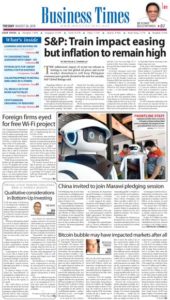
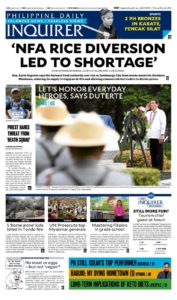

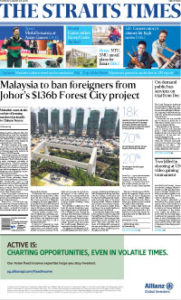
 All photographs, news, editorials, opinions, information, data, others have been taken from the Internet..aseanews.net | [email protected] / For comments, Email to : Aseanews.Net |
All photographs, news, editorials, opinions, information, data, others have been taken from the Internet..aseanews.net | [email protected] / For comments, Email to : Aseanews.Net |







